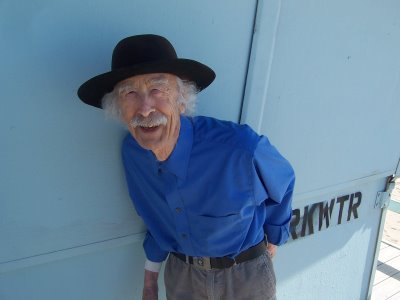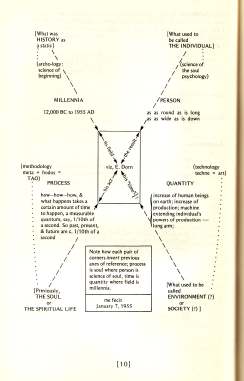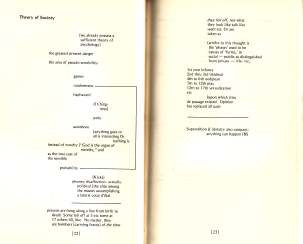Glenn Beck: “I really like our Constitution, I’d like to see it enacted. Let’s fix it and get back to where our founding fathers are.”
Loony, yet, “crazy ass sh*t, but. But, more than a few people do agree with Beck. This is so even if such people couldn’t tell you anything intelligent about what the founding fathers actually thought; what they contested among themselves; and what were their various radically liberal principles.
Here’s a conjecture (of mine) about ideology and history. There is no extant or past example of a form of governance for which it could be demonstrated that it’s procedures of governance wholly and absolutely are realized solely as a matter of adherence to ideological principles. This is falsifiable if it can be shown that there exists or has existed a form of governance for which, in its application of its principles, every instance was/is entirely consistent with principle.
Let’s imagine there are people who are committed to some set of principles in the following, narrow way:
Our endeavor is to instantiate a set of principles. We believe this for two reasons. First, because this set of principles is the best of all possible set of principles. Second, that the principles are best, is verified by the fact that their truth is the most reasonable truth upon which any possible set of principles could be based.
News for social, fiscal & national security conservatives who believe in God, family & country. We seek to uphold the rights of citizens under the U.S. Constitution, traditional family values, Republican principles / ideals, transparent & limited government, free markets, liberty & individual freedom. The ARRA News Service is an outreach of the Arkansas Republican Assembly. However, all content approval rests with the ARRA Editor. While numerous positions are reported, our beliefs & principles remain fixed. mission
Our political climate in the U.S. is very interesting in this year, unfolding now, after the election of Mr. Obama. Several developments have taken me by surprise. Obama surprised me by not partnering his financial system bailout policies with policies aimed to help right the economy of main street from the bottom up. It was also surprising that he didn’t articulate in concrete, instrumental, terms what kind of reform he would endorse, and insist upon, to end the depredations of the speculation-driven shadow economy.
Then, he moved to reform health care and laid it in the laps of his congressional majorities.
In light of these developments, I’m not in any way surprised that people have been stirred to reactionary and (called by me,) restorative activism. Nor was it surprising that they oriented their dissent positively around their patriotism, and, negatively, around their primal fear that the government is posed to strip from him or her so-called freedoms.
I’ll let Missy, writing on her blog at TCUNation, the Social Network for Conservatives, explain:
But the worst part? It allows the federal gov’t to be in charge of every aspect of your life. Every decision you make on a daily basis can be linked to “healthcare.” You drive an SUV? You’re contributing to pollution & that increases asthma…..you need to pay more! Since we have direct access to all of your accounts we know you own a 4-wheeler. That’s dangerous………you need to pay more! We see that you eat at McD’s twice a week. That’s bad for you……you need to pay more! YOU OWN A GUN??? THAT’S DANGEROUS! YOU NEED TO PAY ALOT MORE!!
These liberal fanatics will most DEFINITELY use the federal gov’ts financial stake in your everyday lifestyle choices to CONTROL THEM. Your decisions will no longer be your own, they will be decisions that will be for the “collective good.” And they will be MANDATED & CONTROLLED by the gov’t. And in order to “nudge” you into compliance with their ideology of how you should live your life, they will simply put a financial burden on you if you choose differently.
The paranoia surprised me. How does one square paranoia with a normative conservative ethos that holds its funding principles to be both first, and, last, and to be foundational, and also holds these principles are the only possible enlightened goal granted by reasoning through the problem of governance? Where does paranoia fit in? Is it possible that such foundational principles are, in fact, extremely fragile?
I don’t think so. President Obama has offered a mild liberalism. The bank bailout was extraordinary, yet a Republican would have had to have done the same thing. (Creative destruction is a notion one can practically hold only when the bombs aren’t falling on your own head.) All such bailouts tend to occupy uncertain spots in any ideology. A bailout is above all expedient and unhooked from conventional, ideological morality. They’re grotesque too.
So far Obama’s maneuvering hasn’t been much like anything we associate, historically, with truly radical presidents; especially those with very novel views of the Constitution—such as Jefferson, Lincoln, FDR, Reagan, and Bush II. Nevertheless, the ideological principles survive, and this suggests underlying principles, aren’t at all fragile. This includes freedom given to be a result of, contingent upon, application of, ideological principles.
So why is paranoia evoked?
My tentative view is: affect is consequential in the current ‘social psychological framed’ ecology. Forged in the magical bake shop of projective identification, specific affect-laden estimations are on offer. So: a messianic leader is scapegoated so as to be the cause of knowing (i.e. unconsciously feeling,) that what is possessed, “freedom,” is to be stolen by the conspiratorial Other, (i.e. an alter.) This inflated threat is to be met and defeated by, ironically enough, the collective personal power of freedom-loving individualists. It’s worth noting that in some quarters, this evil goat is assumed to have super powers, or, alternately, is assumed to be the servant of hidden masters.
Putting the participation mystique aside–may Levi-Strauss rest in peace–what are the embedded chain-of-being regimes supposed in a clash between the red-in-blood red-tending-to-blue meme, and, the blue-tending-to-orange meme. These, given by Grave’s Spiral Dynamics, and, given by me in my deployment of a shadow dynamics* supposing the red shadow of blue conservatism’s ‘traditionalistic’ paternal chain of being comes to clash with the neoliberal paternal chain-of-being of Orange. Pre-modern, the red shadow of blue, collides here with the post-modern orientation toward technocratic problem-solving.
(Or, the atavistic self and identity, is felt to be threatened by the spectral, post-modern selves and identities. Perhaps, were one to dig into the narratives, one would find at their core a clash between the production of certainty and productions of uncertainty.)
Among many curious aspects of this clash, is the gravity given to an emotionalized, largely unconscious, sense of freedom. (I’ve written about this before.) What is it about a notional freedom that one can be dispossessed of, versus, other less vulnerable notions about freedom? Isn’t it interesting that the conservative concept of freedom-under-constraint, a necessary consequence of the pessimistic view of human nature, is subsumed in the shuffle through the emotionally-charged libertarian bake shop!
Then there is the conspiratorial tenor of magical narratives. Of course, it’s long-standing that the government is anthropomorphized to be a kind of beast, capable of devouring freedom. In this respect the conspiracy mongering of Ron Paul, or Michelle Bachman, comes to be of a piece with the extreme supernaturalized conspiracy advocates, David Ickes, Alex Jones, and Michael Tsarion. In turn, the current extremes are merely the contemporary waves of olden conspiracy theories. And, heck, why not share some air time with the truly deluded?
“they’ve been positioning…” they, theY, thEY, THEY!
*I have yet to go into this in detail. However, roughly, my proposal is that the vertical scale of Spiral Dynamic is configurable as a dynamic, oppositional scale. This is able to depict how higher and lower memes serve as descriptive categories, and schema, for shadow dynamics. For example, by such a dynamic scale, the shadow dynamics for the Blue Meme are discoverable as aspects of Red (below) and Orange (above). In my novel (or idiosyncratic,) view, the shadow dynamics then tend to fall (or regress,) toward the lower, more archaic order, while this unconscious propensity is galvanized by fear of the upward pull toward the newer, more complex order.
My notion here supposes that a concept of Blue freedom, will come to be defended at the lower, unconscious level of Red. Similarly, this defense is waged against a super-charged (by way of ‘social cognitized’ projection,) ‘controlling’ Orange. Grant this phenomenology, and the result is that fear of bureaucracy regresses to fear of collective control, control formulated to the scale conspiracy; “conspiracy” being the shadow concretization of Orange—in its worst form.
This is consistent—well, at least it is to me—with the mental procedures via which contested, soft conceptions–such as freedom–are reduced, reified and objectified. Then the reified conception’s opposite, in this case anti-freedom, is realized and nailed to the alter. Thus, a collective complex is constellated.








